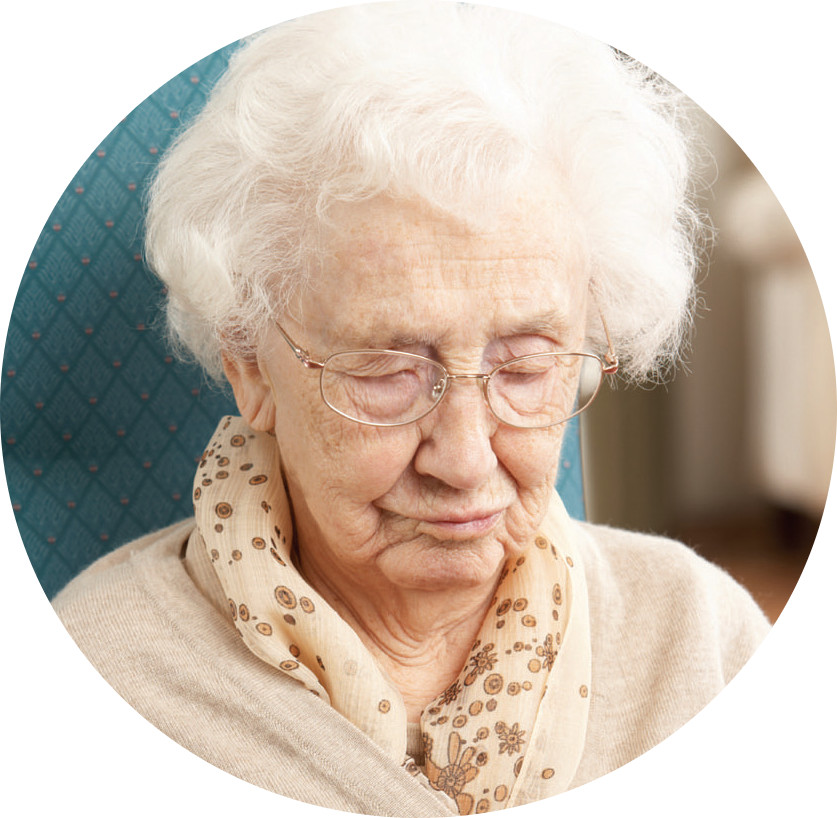In-depth

A friend indeed
In In-depth
Bookmark
Record learning outcomes
Older people form a significant part of pharmacy’s customer base. What can pharmacy staff do to offer that little bit more to this important – and growing – group?

A million older people haven’t spoken to anyone for a month, and some five million older people consider the television to be their main source of companionship. It might be easy to dismiss these statistics as hysterical tabloid fodder, but that isn’t the case: these figures are quoted on the website of Age UK, the country’s largest charity dedicated to helping everyone make the most of later life. Few could dispute the role that community pharmacy can play.
Older people are widely regarded as one of the biggest users of the sector, not only as a means of getting their medication dispensed, but also benefiting from being able to pop in anytime and see a friendly face. Professor Nina Barnett, consultant pharmacist for care of older people at London North West Healthcare NHS Trust’s Northwick Park Hospital, says: “It’s a hugely privileged position to be in, and pharmacy staff can make a big difference to older people because of their training in medicines and communication.”
Communication is key
Professor Barnett urges pharmacy staff to don their “holistic health hat” when dealing with this customer group, but issues a note of caution: “It is vital to be very sensitive to people’s needs. You may notice that someone is hard of hearing when you welcome them into the pharmacy, but ask yourself if they know or even if they want you to know.”
Having good communication skills is key, and this doesn’t just mean being able to explain things in simple terms, it also means listening to what someone says and picking up on what they don’t say in order to best meet their needs, she adds. “You need to acknowledge someone else’s agenda, so when asking ‘can I help you?’ take a genuine interest in their reply and fully engage with what they want. Once you have done that, the customer is far more likely to return the favour by being open to whatever you say,” explains Professor Barnett.
So, going back to the person who is hard of hearing, it’s important to be sensitive to their situation, take the time to find out the purpose of their visit to the pharmacy and provide as much assistance as needed. Only after that could the potentially tricky topic of whether they have had a hearing test recently be gently addressed. This is also a good point at which to have a chat about any other concerns that might be on their mind.
With so many issues affecting older people, it can be handy to have some materials that can be used as prompts for conversations. A good example is the Guide to Practical Ageing leaflet recently published by NHS England in conjunction with Age UK, which runs through various health topics such as fall prevention, footcare and bladder problems, but also touches on lifestyle issues such as diet, exercise and mental wellbeing. A more structured approach is the PREVENT mnemonic, developed by Professor Barnett, which considers areas in which pharmaceutical care could have an impact (see “assessing older people” box below).
Mental strength
Dementia has been high on the agenda since the Alzheimer’s Society launched its Dementia Friends initiative – which received funding from the Department of Health and the Cabinet Office – two years ago. The Alzheimer’s Society’s head of policy George McNamara explains: “Dementia is the biggest healthcare challenge we face as a country, and by the end of the decade there will be over one million people living with the condition in the UK. With two-thirds of these living in the community, pharmacies and their staff have a valuable role to play.”
The sentiment goes both ways, with many pharmacists and pharmacy staff embracing the challenge by undergoing training to become Dementia Friends (for a case study, see below). Some of this action has taken place at corporate level, with Celesio UK – parent company of Lloydspharmacy – becoming a sponsor of the initiative during last year’s Dementia Awareness Week. Clare Kerr, Celesio UK’s head of healthcare policy and strategy, says that 4,000 staff members are now Dementia Friends.
The company is taking the pledge to action that everyone makes when becoming a Friend very seriously and has gone into partnership with the Alzheimer’s Society (which covers England, Wales and Northern Ireland) and Alzheimer Scotland as a result. However, George says that a more low key approach is also fine: “For many older people, pharmacy is the first port of call if they are worried about their health, so it is hugely important that pharmacy staff are dementia aware. This enables customers to engage with pharmacy teams, knowing that there isn’t any stigma or embarrassment and really opens the door to them accessing services.”
Managing medicines
 One area of caring for older people that is a no-brainer for pharmacy is medicines. Prescription collection and/or delivery and repeat dispensing can be hugely beneficial to this patient group, who are likely to be suffering from several long-term conditions. They are also prime candidates for clinical services such as medicines use reviews (in England, Northern Ireland and Wales) or the chronic medication service (in Scotland).
One area of caring for older people that is a no-brainer for pharmacy is medicines. Prescription collection and/or delivery and repeat dispensing can be hugely beneficial to this patient group, who are likely to be suffering from several long-term conditions. They are also prime candidates for clinical services such as medicines use reviews (in England, Northern Ireland and Wales) or the chronic medication service (in Scotland).
Helping people get the most out of their medicines has always been one of the main aims of the pharmacy profession, but recently the principle has been given its own term: medicines optimisation (MO). While this may sound technical and complex, and hence the domain of pharmacists and pharmacy technicians, this is not necessarily the case.
The Royal Pharmaceutical Society has outlined four basic principles of MO:
- Understand the patient’s experience
- Choose medicines that have evidence to support them
- Ensure medicines use is as safe as possible
- Make MO part of routine practice.
Only one of these principles falls outside a medicines counter or dispensing assistant’s competence. Truly everyone has a part to play, including patients themselves. Small things that staff members can do include asking how someone is finding their prescribed medication, for example, when handing out items that have been dispensed.
Such a simple question provides an opening for a whole range of answers, from “yes, it’s all fine” to “actually, there is something that has been bothering me”. Nobody expects anyone to have all the answers, so don’t be scared to broach the subject then bring in someone with more expertise to provide the most appropriate advice.
Case study
Abbey Pharmacy in Rotherham, South Yorkshire, has not only taken on board the dementia awareness message, it is also working hard to spread the word.
Pharmacist proprietor and Numark member Sally Porter was so struck by the Dementia Friends information session she attended in her role as locality lead pharmacist for Doncaster Clinical Commissioning Group, she felt it was vital for all her staff to get to grips with how the condition affects people. This led to her hosting an information session to which she also invited local businesses – which attracted the attention of the local press because the town’s mayor and mayoress attended – and a subsequent workshop at a local pharmaceutical committee event for South Yorkshire pharmacies.
“At the 55-minute session I run, I encourage everyone to think about the benefits of becoming more dementia aware, not just in terms of understanding more about the condition, but also for them as individuals and for their businesses,” explains Sally. “I draw an analogy of charity fundraising; a few people do a lot to generate quite a lot of money, but if everyone just gave a pound, much more would be raised with very little effort. The same is true of dementia; rather than a few people knowing and doing a lot, if lots of people know a little bit, it will make much more of a difference.”
Sally continues: “From Abbey Pharmacy’s point of view, we were recently refitted, so there isn’t really anything to do in terms of making the environment more dementia friendly. What can have much more of an impact is staff understanding how they can help people to live well with dementia – for example, being patient if someone is slow handling money – and we also display information on the condition as a way of facilitating early diagnosis and support for both patients and their carers.”
Caring for carers
One often overlooked aspect of care of older people is the knockon effect on those around them. Family members can all too easily – and without making a conscious decision to do so – end up taking on ever more caring responsibilities, and can be reluctant to speak up if they feel under pressure or have health worries of their own.
Professor Barnett says: “Often, care is provided in a very informal way, and not necessarily by someone who is in the best of health themselves. For example, a husband might be providing medication compliance support to his wife by popping her tablets out of blister packs each morning and bringing them to her with a cup of tea because she takes a while to get going each day. But what if he gets poorly, or goes into hospital?”
Keeping an eye on such situations is something that pharmacy staff can do, and a note made in the patient medication record on the dispensary computer can help flag up potential issues as they occur. George says it is easy to take for granted the work carers that do, but urges pharmacy staff to encourage this group of unsung heroes out of the shadows:
“We’d like to see carers as partners in care, so make them part of the conversation about healthcare. It is important to understand someone’s personal situation because then you can identify ways in which their lives can be made easier – for example, by arranging to collect prescriptions on their behalf from the GP practice.”
Carers are often under a lot of stress, George highlights, so it is sensible to check how their health is as well as that of the person they are caring for: “Pharmacy can act as a hub for accessing carer support, not just by signposting what is available in the area, but by thinking a bit wider and perhaps hosting drop-in sessions so they feel there is somewhere they can go if they have any worries.”
Signposting
Assessing older people
Nina Barnett, consultant pharmacist for care of older people at London North West Healthcare NHS Trust, and a visiting professor at Kings College London’s Institute of Pharmaceutical Science, has developed the PREVENT mnemonic to help identify people who might benefit from additional medicines support:- P: physical impairment, e.g. hearing or visual problems, swallowing difficulties, poor mobility
- R: risk from medicines, e.g. on a high risk medicine such as strong painkillers or drugs that can cause drowsiness
- E: adhErence issues, e.g. poor understanding of medicines, erratic medicine taking
- V: cognitiVe impairment, e.g. memory issues due to dementia
- E: exacerbation or new diagnosis, which may impair ability to self-care
- N: compliaNce support required, e.g. large print labels, calendar packs rather than loose tablets
- T: cocieTal issues, e.g. problems living independently day to day.
Dementia is the biggest healthcare challenge we face as a country
